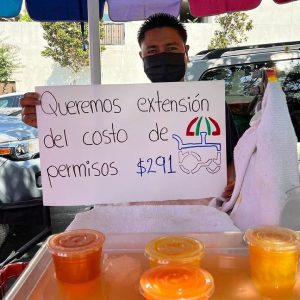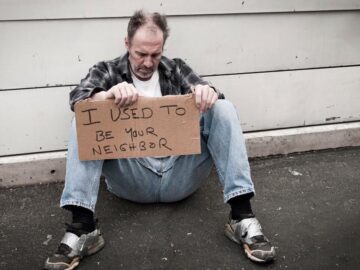To: LA City Council Dear Honorable Members:

As a residents and voters in LA, we urge you to pass a street vending legalization proposal that promotes justice, safety, and vibrant public space. We write in support of a comprehensive and inclusive Sidewalk Vending Program (Program) for Los Angeles. This Program should create opportunities for vendors to formalize their business and work without fear of criminalization, while promoting safety and accessibility in our public space. Unfortunately, the current proposal includes several policy elements that, if adopted, could prevent legal vending in wide swaths of the city in such a way that could cripple the entire Program. We urge the Council to consider and adopt the recommendations of the LA Street Vendor Campaign, as outlined in the coalition’s January letter. In particular, we urge the Council to consider the following:
-
Do not give private property owners authority to disallow (veto) vending on the public right-of-way near their property. We strongly oppose giving private property owners veto power over a vendor’s ability to work on the public sidewalk. Protecting certain favored businesses from perceived competition clearly exceeds the appropriate scope of this Program. As the LA Times Editorial Board notes, giving business owners veto power over what happens on the sidewalk would be “an unprecedented giveaway, allowing a private business to govern a public space. Doing so would invite extortion, as property owners could demand ‘rent’ from vendors for their permission to sell on the sidewalk.” This policy would also reinforce a hierarchy that values street vending less than other types of small businesses. It would elevate property ownership over micro-entrepreneurship and delegitimize street vending as something not deserving of the same protections and opportunities afforded other businesses. This is not the message our public policy should send. There is no need to pit one type of small business directly against another. Reasonable rules for vending location will already prevent vendors from obstructing the entrance to a brick and mortar business, and will require vendors to help keep the sidewalks clean. The Council could consider other procedures to resolve conflicts between businesses without discriminatory bans and unjust exclusions. Giving certain private property owners absolute power to prohibit vending opportunities is a potentially fatal blow to this Program. We urge you to avoid including such a provision.
-
Do not allow Special Sidewalk Vending Districts to result in unjust exclusion of vendors. Certain individual areas may exhibit unique dynamics that make the standard rules for vending unworkable. In these circumstances, it is appropriate to build in flexibility to adjust rules. But this should not create a backdoor tool to “opt-out” of the City’s program altogether, or impose onerous restrictions based on anti-vending sentiment. Instead, the creation of Special Sidewalk vending Districts should: (A) never result in the complete prohibition of vending in a community; (B) include appropriate size limitations for districts; (C) enable vendors and other stakeholders to initiate districts to expand vending opportunities; and (D) require City Council approval based on health and safety findings.
-
Promote public safety without arbitrary restrictions on opportunity. The Sidewalk Vending Program should include reasonable rules on where and when vending may occur, in order to ensure accessible public sidewalks and safe business operations. However, the current proposal goes too far, and instead threatens to eliminate vending from wide swaths of the city that could safely accommodate it. The Sidewalk Vending Program should not impose a limit of two stationary vendors per block face. Such an arbitrary restriction – applied uniformly to the City’s largest and smallest blocks alike - ignores the diversity of our built environment. Instead, the Council should allow more vending on the City’s larger boulevards and should allow vendor applicants to petition for additional locations on blocks where it will not negatively impact public safety. The Sidewalk Vending Program should include reasonable rules on sidewalk placement to ensure safe passage and protect customers from unsafe proximity to vehicle travel. However, these rules should be thoughtfully crafted according to the realities of vending and pedestrian activity -- not copied directly from an old ordinance regulating news racks (LAMC section 42.00(f)(6)), as currently proposed. The Sidewalk Vending Program should also relax the hours of operation in non-residential areas. Many vendors work outside the hours of 7:00am to 9:00pm to accommodate other pressures on their schedules, such as childcare and supplemental employment, and to cater to consumer preferences.






